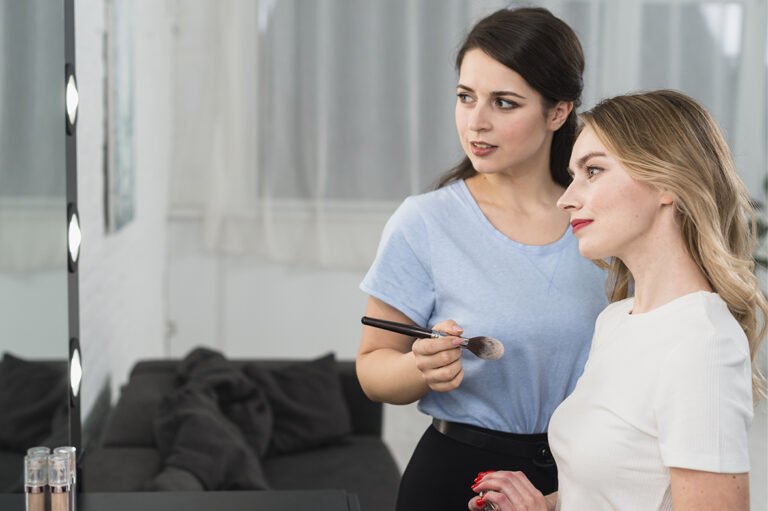- Madukappilly Tower Pathadipalam,Edappally, P .O, Kalamassery, Kochi, Kerala 682024
The Psychology of Beauty: Understanding Client Preferences

Beauty transcends the superficial and has a powerful allure. Feeling gorgeous, self-assured, and in control is more important than simply appearing attractive. But have you ever questioned why different people have such differing views on what is beautiful? It’s all about psychology, not simply chance! Let’s explore the interesting field of beauty psychology and learn how it affects customer tastes.
The Ability to Perceive
It’s true what they say about beauty being in the eye of the beholder. Our brains are designed in certain ways to experience beauty. Not only is it important to have symmetrical features and smooth skin, but also how our minds process these attributes. It’s imperative that beauty industry professionals like you realize this.
Halo Effect
Have you ever met someone who became attractive as soon as they started talking? The “halo effect” is evident in this situation. It occurs when we judge anyone to be more attractive because of their positive traits, such as a pleasant disposition or a friendly smile. By increasing your clients’ self-esteem and inner beauty, you can help them look more beautiful. Remember, a happy client is a beautiful client!
The Influence of Culture
The culture we live in has a significant impact on how we view beauty. In different parts of the world, different things may be seen as lovely. In order to serve a broad clientele and help them feel beautiful in accordance with their cultural conventions, you need to become knowledgeable about various beauty standards.
Role of Social Media
Social media deeply impacts beauty standards in our modern digital era. Beauty influencers are everywhere, creating new trends every day on TikTok, YouTube, and Instagram. In an effort to copy their favorite influencers’ looks, clients frequently bring images into your salon. Your key to a delighted, happy client may be discovering these patterns and influencers.
Adding a Personal Touch
Beauty is highly individualized. Every customer has particular preferences and insecurities. Your secret weapon is to pay close attention to what they want and worry about. A minor adjustment, such as a new hair color or makeup style, can do wonders for their confidence and sense of beauty.
The Bond of Emotion
Last but not least, beauty surpasses the purely corporeal. It has to do with the emotional bond you build with your customers. A nice conversation, a soothing environment, and a listening ear can go a long way. Clients frequently return to a salon where they feel respected and understood—not just for their outward beauty but also for who they are as people.
In summary, beauty is a complicated combination of psychology, culture, and personal preferences. Your success as a beauty expert depends on your ability to comprehend the psychology of beauty. Making your clients feel their most beautiful selves is more important than just doing cosmetics and styling their hair.
The next time a customer sits in your chair, keep in mind that you’re doing more than simply giving them a gorgeous appearance; you’re also giving them more self-confidence and enabling them to shine from the inside out. And there, my friends, is the real heart of the psychology of beauty!
